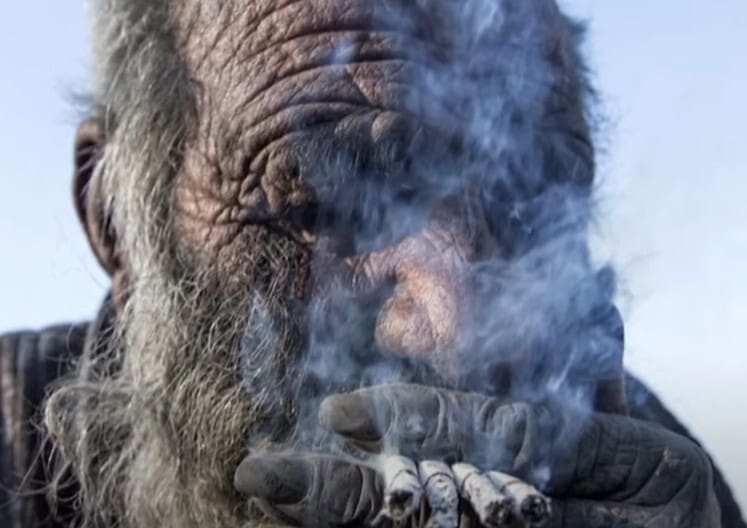Amou Haji, often referred to as the “world’s dirtiest man,” passed away at the age of 94 shortly after bathing for the first time in over 60 years. Haji, who lived in the Iranian village of Dejgah, avoided washing himself due to a fear that cleanliness would make him ill. His lifestyle included unusual habits such as eating rotten porcupine and other dead animals, and drinking water from puddles.
Haji’s avoidance of water extended to his personal hygiene, with his skin becoming heavily caked in dirt over the decades, to the point where he was said to blend into the barren landscape of his village. Despite the villagers’ persistent efforts to encourage him to wash, Haji resisted until just a few months before his death, fearing that bathing could lead to sickness—a fear that tragically seemed to come true as he fell ill shortly after finally deciding to bathe.
His death marks the end of a peculiar life marked by extreme aversion to water and conventional hygiene, a choice that Haji claimed stemmed from emotional setbacks experienced in his youth. His story has captivated global audiences, offering a stark reminder of the varied human experiences around the world and sparking discussions on the psychological and physical impacts of extreme lifestyle choices.




